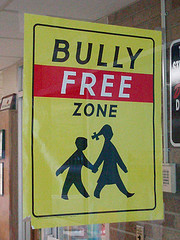|
Why is my Mom is Making Me Go to Therapy? If you are reading his post, you are probably one of two types of people:
My next few posts are all about helping parents and teens understand each other’s point of view about going to counseling. Today, I answer two very common questions from teens about therapy. “Can my parents make me go to counseling?” The answer is a little tricky. Legally, it varies from state to state. In Colorado, teens who are 15 years and older MUST consent to their own therapy. Parents have to give their permission for teens who are under the age of 15 to be seen by a counselor. The age limit might be different in your state, but written permission for therapy is required everywhere. So, if you are under 15, and live in Colorado, your parents can “make” you go to therapy. They can also strongly encourage older teens to go or make it a requirement in their home. What parents cannot do, is force you to talk or make you be honest with your therapist. This is something you have to decide for yourself, regardless of your age. “Why do my parents think I need to go to therapy?” Sometimes it can help to speak with someone who is objective, meaning they aren't part of your family, your school or your community. Some of the main reasons I see teens for counseling are when they experience:
This is just a short list of the things you can talk about in therapy sessions. Nothing is off limits. If you want to talk about it, go for it! Therapists are great listeners PLUS they'll offer suggestions and work with you to meet your goals. Check back next week for a post about what you can expect when you go to therapy sessions. I'll also be posting soon about what's up with your therapist and why you just might like therapy! Update: Check out the second and third parts of the series! The Guide to Therapy for Teens, Part Two: What to Expect in Counseling The Guide to Therapy for Teens, Part Three: What's the Deal with Your Therapist? Bethany Raab is a Licensed Clinical Social Worker in Denver, Colorado.
She is passionate about helping teens and families be happy and healthy!
If, as you read, you begin to think that your family might benefit from making changes in one or more of these areas, do not worry! It is never too late to take action. See each step below for specific examples on how to bully-proof your child!
Finally, check out my 2012 blog article on helping kids know what to do if they are bullied or witness someone else being bullied. Click here to read more. Image from Flickr. Some rights reserved by Eddie~S. Bethany Raab is a Licensed Clinical Social Worker in Denver, Colorado.
Ahh, summer. The season kids yearn for and the season parents often dread. Have you ever found yourself wondering "how can I keep my teen busy over the summer?" or "how do I make sure my teenager stays out of trouble?" Below are 5 suggestions to help your teen have a fun and safe summer vacation!
1) Allow time with friends Spending time with friends is likely at the top of your teen’s list of favorite things to do. Allowing your child to spend time with friends is important. Also important is getting to know your teen’s friends and their parents. Have your child invite their friends over to the house. Drive or accompany the teens to an event. Both are ways for parents to get to know their child’s friends. Finally, enforcing rules around acceptable activities and curfew will help your teen spend safe and enjoyable time with their friends. 2) Stick to a schedule Most people love sleeping in, and no one loves it more than the teens in your life! There is something wondrous about crawling into bed, not setting the alarm, and waking up when your body is ready. However, imagine how difficult going back to school in the fall will be if your teen spends the summer staying up late and not rising until mid-to late morning? The National Sleep Foundation states that the average teenager requires 9 ¼ hours of sleep to function at their best. While school performance is certainly a part of a teen’s healthy functioning, it is not the whole story. Getting enough rest is integral to your teen’s ability to maintain a healthy attitude (mood) and body. See the full NSF article here. Help your teenager feel their best by setting a summer schedule at home that allows time for work, time for fun and time to get enough sleep! You'll be thankful you did when the first day of school arrives! 3) Follow the rules Teenagers thrive when they have a structured schedule to follow. Why? Experiencing structure and rules at home are how children and teens learn to follow society’s laws and the rules/expectations they will be subject to in school, jobs, and so forth. Just because it is summer and your teen does not have to be up early for school does not mean they automatically get to stay out late, skip chores and do what they want. Parents should enforce the house rules, give consequences when necessary and reward good behavior. Consequences should be reasonable and enforceable. Rewards should also be practical and feasible for the family. Rewards do not need to be monetary but can include extra free time doing an activity of choice or a special activity with the family or friends. Additionally, genuinely praising your teenager is a very powerful reward that can help strengthen your relationship with them and develop positive self-esteem. Check out this article from WebMD for more information on praising children of any age! Here is another resource for praising older children and teens. 4) Keep their brain and body busy Many teens may not want to be involved in a structured summer activity. However, this does not mean they should simply spend their summer sleeping, eating and playing video games! There are many ways to keep your teen active both in the home and in the community. The website Parenting a Teenager suggests that parents encourage teens to find a summer job, volunteer and stay active. Teens can also help with projects assigned by parents, other family members or neighbors. Doing yard or housework can help teens stay active. It also helps keep their parents happy! Joining a sports league, recreation center or YMCA are other ways for teens to stay active and healthy! Reading, going to the library, visiting a museum or joining a club can help your teen keep their brain active while they are out of school. 5) Spend time with them Spending time with their family is not a preferred activity for most teenagers. They are at a time in their life where peer relationships and feeling independent are increasingly important. However, teens that spend time with their parents experience a number of benefits including improved academic success, stronger emotional bonds with family members, lower rates of violent behavior and drug use. See Familyfacts.org for more information! Spending time with your teen allows them to ask questions, seek advice and share information about what is going on in their world. It is also a time for parents to ask questions and assess the physical and emotional health of their teen. Finally, it is a great way to have fun and create lasting family memories! I wish your family the best over the upcoming summer vacation! If you have concerns about your teen, please call 720-722-0527 or submit a message here to discuss how Bethany may be able to help! |
Welcome!
Every blog post you see on this page is written especially for teens and their parents! Like it? Pin it!
Follow me!
Categories
All
|



 RSS Feed
RSS Feed